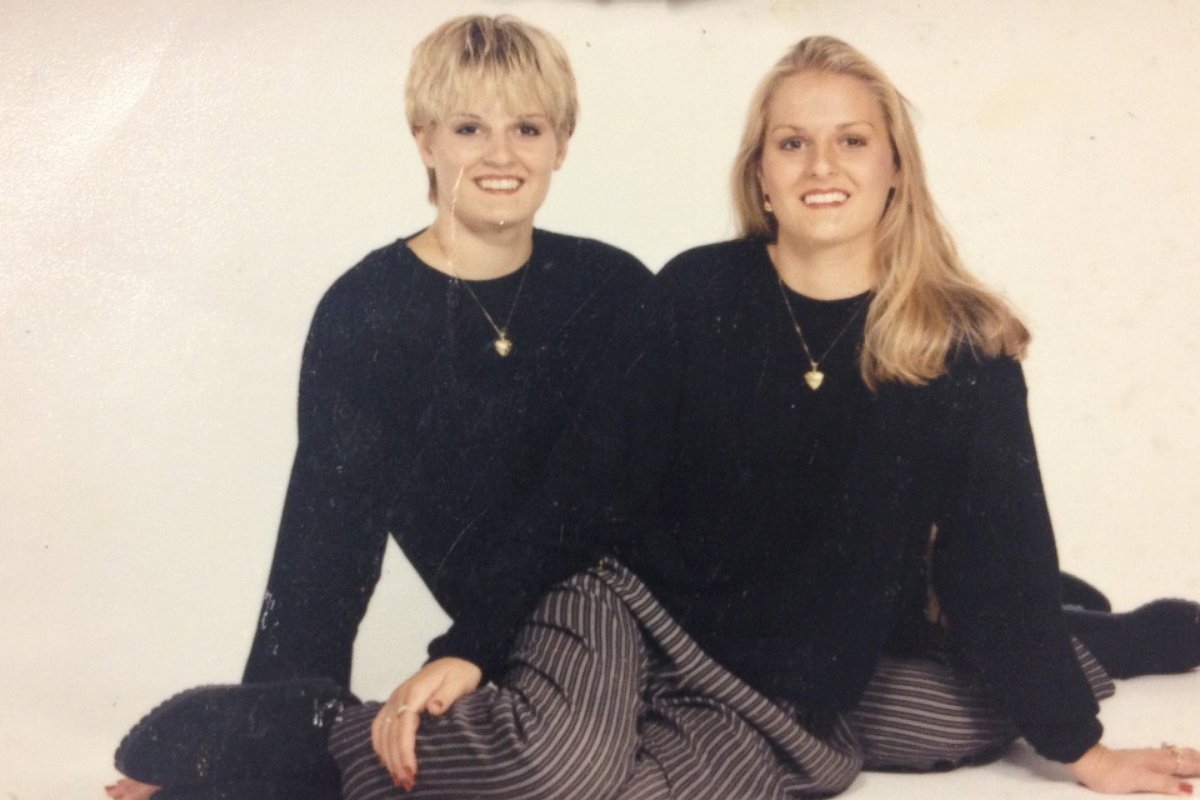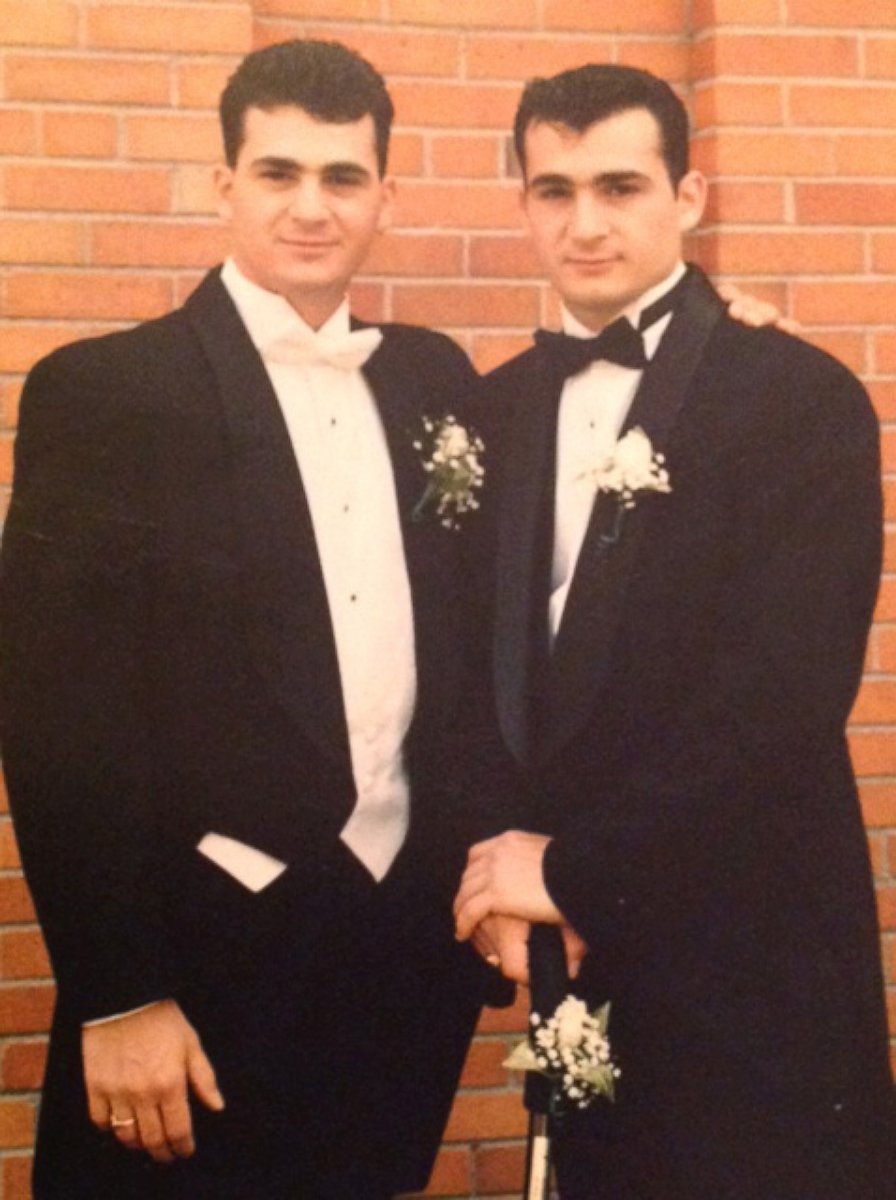Twinless Twins Grieve Together
People whose twin has died have found one another on Facebook.
— -- It’s been 10 years since Alyssa Dreiver’s twin sister died, but people still mistake her for Anissa.
They were identical, with blonde hair, brown eyes and matching smiles. When they spoke the same word at the same time, their throats would vibrate, Dreiver said.
But then a driver hit Anissa’s car head-on, killing her instantly when she was 25 years old.
Losing Their ‘Other Half’
“On February 1st 2004, my world was shattered,” Dreiver, now 35, told ABC News. “When I looked at her in the casket, I felt as if I was looking at myself.”
The two were inseparable growing up in Oklahoma, Dreiver said. They wore matching outfits, but in different colors. When Dreiver cut her hair during her senior year of high school, Anissa cried because they no longer looked exactly alike. Even after they moved to separate cities and got married, they would still drive six hours to see one another every few months and sleep in the same bed.

Though Dreiver had experienced other close family members’ deaths, Anissa’s death was different, she said.
“Anissa is half of me. She is half of my soul. She’s a part of me. She’s my best friend. She’s like my shadow,” Dreiver said. “And I no longer have that.”
Dreiver said she has had a hard time coping. Every time she looks in the mirror, she remembers what she lost, she said.
Finding Twinless Twins
Last week, Dreiver found a Facebook support group for “twinless” twins – people who have lost their twin.
“I already feel a wonderful connection with them that I haven’t felt with any counselor or friend or anything like that,” she said. “No counselor I have ever been to can help me because they don’t understand.”
The national Twinless Twins Support Group has been around for decades, but the Facebook group has helped connect even more people over the last few years, especially those between 25 and 35 years old, said the group’s administrator, Dawn Barnett. Although there were 250 Twinless Twin Facebook group members in 2012, there are now nearly 1,500.
“We believe that by helping other twinless twins who are grieving, it helps you,” Barnett said, echoing Alyssa’s point about how other people don’t quite understand. “Twin loss is so deep because you were bonded from the womb on.”
Domenick Abbate, 40, who said he always felt like the big brother figure to his twin Frank, said the two of them were so close that they swore they could share dreams as children.

Frank, a canine handler for the New Brunswick Fire Department following the September 11 attacks, died of lymphoma in 2010, Abbate said. He tried to keep moving forward, but eventually he started drinking, missing work and experiencing marital problems.
“The minute I got home, I wanted to crawl into a ball,” he said. “You still feel that missing connection. It was basically eating me up inside."
His wife was the one who found the twinless twins group and suggested he go to their annual conference in mid-July. He felt an almost immediate connection, he said. He loved how the group members would know when he needed a hug even before he did.
“We almost all had the same story in the end -- how we were feeling” he said. “No one else understood. My sister, my mother, they all say ‘I understand how you feel,’ but they didn’t.”
No Longer Living as ‘We’
At the annual Twinless Twins conference this year, about 120 attendees – 10 percent of the total group – lost twins in utero or as babies, Barnett said, noting that the organization doesn’t keep statistics.
Kevin Mullen, 33, of Vermont, is among them. Mullen’s twin died when his umbilical cord wrapped around his neck and a blood clot formed, he said. Mullen himself was born with cerebral palsy. The only photo Mullen has of the two of them is an ultrasound photo.
“I’ve always been around twins. I have twin cousins, several sets of twin cousins,” he said. “Even though I do miss my twin, I honor him in different ways.”
Mullen happened upon Twinless Twins in the 1990s and said he honors his twin by participating in memorial walks and fundraisers for the group.
He said milestones, like turning 16 and going to Europe, always made him think of his twin because it would have been something they could share together.
Kendra Felder, 24, said she feels the same way. She found out about her twin sister when she was about 8 years old. Her twin, Courtney, died 11 days after they were born premature. On their birthday, she said she likes to find Courtney’s baby blanket and put it in a shadow box. She always thinks of her twin when a friend or family member dies and when she finds herself in a period of transition.
Baby Girls are Family's Fourth Generation of Twins




